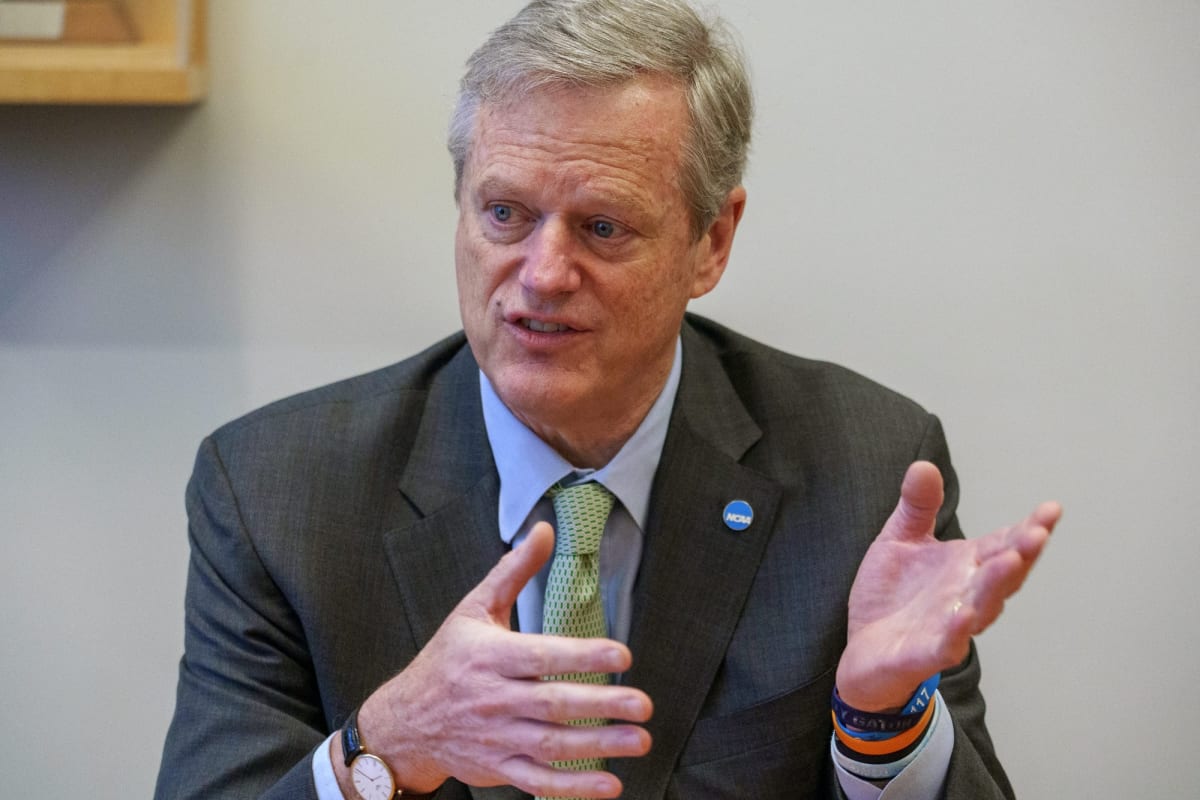NCAA president Charlie Baker is trying to execute a political process. It’s a playbook he knows quite well as the former governor of Massachusetts. That is the impetus behind the letter he released in December outlining a bold and transformative vision for college athletics. It was three-pronged: allow for schools to offer enhanced educational benefits, allow them to enter into name, image and likeness deals directly with athletes and create a new subdivision where the higher-resourced schools can increase investment in athletes and set their own rules. It was a starting point, but to his surprise, it was treated as a finished article and formal proposal by some in the membership.
“In government you set the table, right?” Baker said to reporters on the eve of his state of the NCAA address to administrators across all three divisions at the NCAA Convention for the first time. “You file a bill. You don’t expect to get it back the same way you file that. You don’t think it’s written on a stone tablet. It’s a place to start. And I met with all 97 conferences during my first 150 days or so. I’ve met with 30 of them again. I plan to meet with all of them every year. And there was overwhelming interest in doing something like this.”

Mykal McEldowney/IndyStar/USA TODAY Network
There’s a funny thing that happens in college sports: Administrators almost unanimously agree something sizable has to change with how the enterprise operates, and yet still many balked at Baker’s starting point. You typically go to an NCAA convention and hear the gripes about a broken system, then ask administrators what they did in their sessions and they don’t have much substantive news.
Some administrators within the NCAA were shocked both that Baker proposed this at all, and the starting point was as bold as it ended up being. It’s understandable because to call the pace at which change comes in college sports glacial would be an insult to the polar ice caps, which is what happens with an organization that has more than 170 committees across its three divisions.
One committee, the Division I Council, adopted a proposal for athlete protection, which include: a voluntary agent registry, mandatory athlete disclosure of NIL agreements over $600 to the schools to develop an anonymous database of deals, a template contract to help athletes and their families make informed decision and a commitment to comprehensive NIL education. It will become effective Aug. 1.
This is Baker’s second convention, but the first in which he was an active participant. He hadn’t officially taken the job last year and mostly observed. This year’s speech was highlighted for its wins, which, as one athletic director told Sports Illustrated made it very different from former NCAA president Mark Emmert, who was more apt to speak to the membership about the roadblocks to change in his speeches.
Related: Michigan Won Football National Title ‘Fair and Square,’ According to NCAA President
Baker outlined 10 wins in his speech, including the recent signing of the media rights deal with ESPN for non-FBS football championships (timed conveniently right before the convention), tweaks to NIL bylaws and a partnership with Signify to help monitor online abuse directed at coaches and players. He also spoke about retooling the rules and penalties around sports betting, which he called “Draconian,” and building a database so the NCAA has a better idea of who its fans are and how to market to them.
Baker will deal more directly with politicians in the days and weeks to come after a Florida representative released an updated draft for a college sports bill. Baker is among the witnesses due to testify in front of the House innovation, data and commerce committee in a hearing scheduled for next week.







